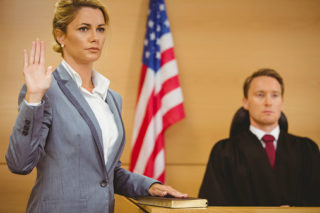Cornell Ruling Is Cause for Experts’ Concern
 I recently co-authored an article for Law360 entitled “Cornell Ruling Is Cause for Experts’ Concern,” which covered the ruling by the New York Court of Appeals in Cornell v. 360 West 51st St. Realty, LLC (2014 NY Slip Op 02096). The ruling dealt with the admissibility of an expert’s causation opinion in a mold exposure suit. Click here for the complete text of the article. A summary of the piece follows.
I recently co-authored an article for Law360 entitled “Cornell Ruling Is Cause for Experts’ Concern,” which covered the ruling by the New York Court of Appeals in Cornell v. 360 West 51st St. Realty, LLC (2014 NY Slip Op 02096). The ruling dealt with the admissibility of an expert’s causation opinion in a mold exposure suit. Click here for the complete text of the article. A summary of the piece follows.
In Cornell, the plaintiff sued for bodily injury she allegedly suffered from exposure to mold. She claimed the source of the mold was construction work performed in the basement of her apartment building. Her expert offered the opinion that there was an “association” between the mold environment and the plaintiffs’ symptoms, which included dizziness, headaches, rashes and respiratory problems. The Court of Appeals, however, rejected this expert’s opinion, noting that it failed to satisfy the general causation and specific causation requirements set out in its landmark decision in Parker v. Mobil Oil Corp., et al, 824 N.Y.S. 2d 584 (2006). Briefly, in Parker, the Court of Appeals ruled that an expert’s causation opinion must establish three elements: (1) the plaintiff’s level of exposure to the relevant toxin; (2) general causation, such that the toxin could in fact cause the illness and that the level of exposure would engender such illness (dose-response relationship); and (3) specific causation – the likelihood that the specific toxin did cause the plaintiff’s injury. Failure to satisfy any of these elements would render an expert opinion inadmissible.
On the general causation point, the Cornell court ruled that ”studies that show an association between a damp and moldy indoor environmental and the medical condition that [plaintiff’s expert] attributes to [plaintiff’s] exposure … do not establish that the relevant scientific community generally accepts that molds cause the adverse health effects.” Similarly, the court found the plaintiff’s expert opinion to be legally deficient on the specific causation requirement, noting that plaintiff “did not show the necessary specific causation.”
Cornell reaffirms that an assessment of specific causation is required in the scientific community and in courts. Without it, jurors would be asked to speculate whether a plaintiff’s injuries are the result of exposure to certain alleged toxins. Where the scientific community cannot substantiate causation, jurors should not be asked to do so either.
We welcome any comments or questions from our readers related to this interesting topic – as to the admissibility of an expert’s opinion – where “injury causation” is questionable.
This blog post was published originally on July 1, 2014.







